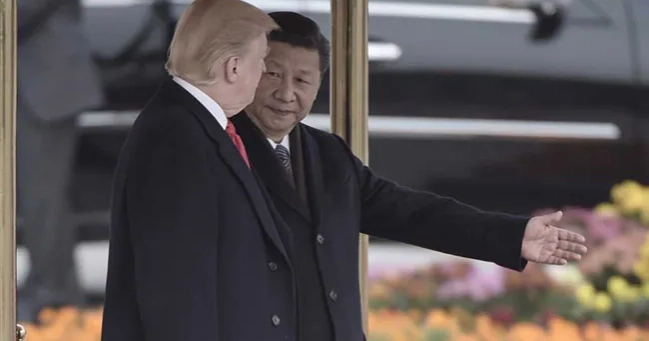UNB – Tensions between China and the United States intensified on Tuesday as President Donald Trump escalated trade hostilities by imposing a sweeping 104% tariff on all Chinese imports. With neither side showing signs of retreat, Beijing pledged to counter what it described as American “aggression” with unwavering resistance.
Initially, Trump had announced an additional 34% tariff on Chinese goods. In response, China imposed an identical tariff on American exports. The US then retaliated with another 50% duty. When combined with existing tariffs from earlier in the year, the total increase on Chinese imports under Trump’s second term has reached 104%.
China’s Response
Beijing denounced the latest measures as economic blackmail and vowed to resist “to the end.”
In a phone conversation with European Commission President Ursula von der Leyen, Chinese Premier Li Qiang stated that China is well-prepared to cushion any external economic shocks. He expressed confidence in the continued “stable and healthy growth” of the Chinese economy in 2025 despite Washington’s latest tariff escalation.
Li emphasized that China’s macroeconomic planning had already factored in global uncertainties, and he condemned the US actions as examples of unilateralism, protectionism, and economic coercion. He said China’s firm response was aimed not only at safeguarding national interests but also at defending international trade norms.
“Protectionism leads nowhere – openness and cooperation are the way forward for all,” Li told von der Leyen, as quoted by Bloomberg.
Beijing’s remarks followed another turbulent day for US markets, which saw sharp declines as Trump remained resolute. The China-EU call took place just hours before Trump’s new tariffs were set to affect Europe as well, with a 20% duty on EU exports looming.
Trump’s Trade War Strategy
The global economy has been rattled since Trump’s initial 10% tariffs came into effect over the weekend, triggering widespread market volatility and fears of a potential recession. Import costs to the US from numerous countries are set to rise even more starting Wednesday.
Trump claims the tariffs will restore America’s manufacturing base by compelling companies to bring production back to the US. However, economists and business leaders are skeptical, warning that such a shift would take time—if it happens at all—and that consumers will likely face higher prices as a result.
Despite mounting criticism, Trump declared on Tuesday that the US is “taking in almost $2 billion a day” from the tariffs.
Global Reactions
Following Washington’s refusal to reconsider its tariff policy, Canada announced it would implement its own duties on select American automobile imports starting Wednesday.
Meanwhile, the European Union—long criticized by Trump for its trade policies—is expected to announce its countermeasures as early as next week. French President Emmanuel Macron urged Trump to rethink his approach but said the EU would respond if necessary.
In response to US tariffs on steel and aluminum introduced last month, the EU has prepared duties of up to 25% on a range of American products, including soybeans and motorcycles, according to AFP.
Tailored Trade Agreements?
Trump stated that the US is pursuing “tailored deals” with preferred trade partners, with the White House confirming it would prioritize allies such as Japan and South Korea.
US Trade Representative Jamieson Greer told the Senate that several countries—including Argentina, Vietnam, and Israel—had expressed willingness to lower their tariffs.
Despite retaliation from China and rising domestic criticism, Trump has ruled out softening his hardline trade policy.
Source: NDTV


